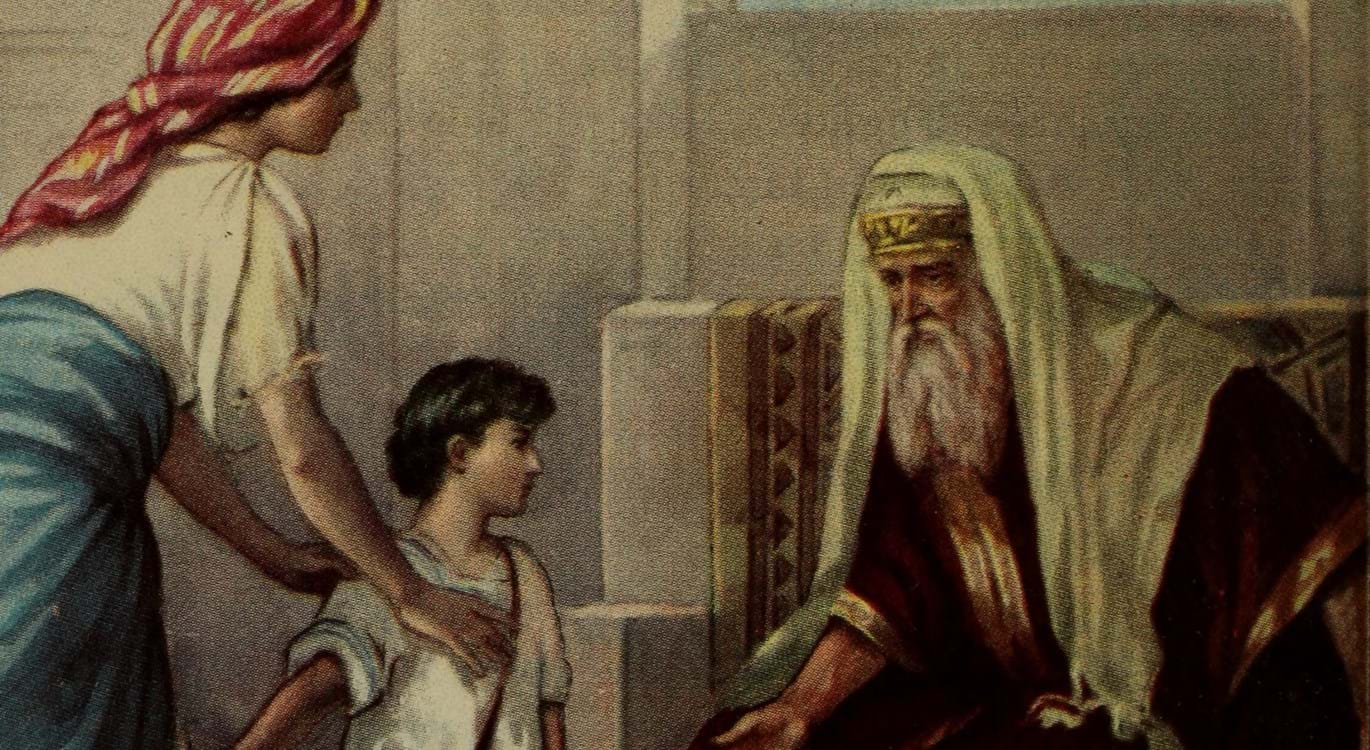Periodically, the people cry out for deliverance and, mercifully, the LORD raises up judges to deliver them and lead them in repentance. The recorded vignettes of the times when there was “no king in Israel” are horrific commentaries on a nation that has sunk into functional atheism (Judges 17-21). Sure, the form of worship was being performed in Shiloh, but “everyone did what was right in his own eyes” (Judges 21:25).
Sadly, in times like these, the prominent and powerful often succeed on the backs of the weak and less fortunate. The image of God is distorted when the LORD is not worshipped. Women suffer at the hands of men. In this instance, the political and spiritual leadership of Israel has lost its way. Judge and priest Eli has lost his ear for the voice of God (1 Samuel 1-4), become blind to the plight of the people, tolerant of the sins of his sons and fat on the sacrifices that were for the LORD. But these bleak times of helplessness are recorded “for our learning” (Romans 15:4) – not only as warnings against faithlessness, but also as encouragements to hopefulness. It is in these times, when all seems lost, that we see individual faith in God bring about transformation and renewal.
The book of Samuel opens with one of these suffering women. Hannah is cared for well enough by a loving husband, but he has two wives. Her inability to bear children is cause for personal grief and ridicule from her rival. She is further misunderstood in this anguish, accused of being drunk, as she prays to the LORD for a son. But why is Hannah so motivated to bear a son?
Is she seeking an edge with her husband over her rival?
Is she seeking to silence her rival?
Does she just need to prove to herself that she can have a baby?
Hannah’s desire is deliverance for Israel. Sure, she has personal concerns, but these pale into insignificance. What difference can she make? Little barren Hannah? She vows in her prayer to the LORD that should He grant her request of a son, the son will be devoted to the LORD as a Nazirite all the days of his life (1 Samuel 1:11). She is not seeking a son for any personal benefit. She wishes to be part of the long line of faithful women who recognize that one day a son born to them will bruise the head of the serpent (cp. Genesis 3:15). Her eyes are not closed to the plight of the people of Israel. She sees the corruption in the priesthood, she feels the oppression of the proud, she knows that it is only the LORD who can deliver them.
One only needs to give a cursory perusal to Hannah’s song of worship (1 Samuel 2:1-10) to see the depth of her faith and the goal to which she was yearning. Her people needed deliverance, they needed a godly king anointed with the power of the LORD. She was seeking a messiah (first mention in the Bible here in verse 10). Little wonder then, when Mary considers the news from Gabriel concerning the Child she would bear, she borrows these words from Hannah as she contemplates her role in the arrival of the Messiah (Luke 1:46-55)! Hannah discerns the situation, recognizes it is God-sized, and offers all that she can to His service – the fruit of her body if the Lord so wills. He wills. He still wills.
Hannah wasn’t the only one grieving over the state of the nation. The wife of one of the priests, Phinehas, was keenly aware of the corruption in the priesthood. Too aware, perhaps. It was well known that Phinehas was sleeping with the women who came to worship (1 Samuel 2:22). He also stole from the sacrifices, bringing home the best cuts of meat which were to be for the LORD. She likely knew that the LORD had warned and pronounced judgement on him and his family, and lived with his intransigence. Here she was, associated by marriage with a priest who lived with no fear of God! He lived with a sentence of death over his head – a death that would be dramatic (1 Samuel 2:34) so that all would know it was judgement from God. She knew it was a sham priesthood. She grieved silently. Privately. How could she ever declare the truth of the matter? The reality of the situation in Shiloh?
She was pregnant, approaching the time to deliver her baby. Phinehas had pompously gone off into battle with the Philistines with the ark, symbol of the LORD’s presence, expecting the symbol to bring about victory. He had no appreciation for the reality of the LORD’s presence! The report came back, the ark was captured. Israel defeated. Phinehas dramatically slain. The judgement of God had come to pass. The shock of it all brings about labour and, as she labours to deliver her son, she passes away. Her parting words are the naming of the child “Ichabod, saying, ‘The glory has departed from Israel!’” (1 Samuel 4:21). In the name she gives to her son as she is dying, she diagnoses the main cause of Israel’s problems. God had departed because He had been forgotten.
Finally, another woman, Abigail, indirectly leaves her mark on the nation. She is married to a worthless, ruthless man called Nabal (1 Samuel 25), but her character is such that she is warned about her husband’s ill treatment of David. At this point in the narrative, David has been anointed king by the LORD through Samuel, but has not been acknowledged as such by the people. In fact, he is on the run from Saul, the king God has rejected. Nabal’s foolish response to David’s messengers inflames David to the point that he is going to kill Nabal and all his men. Abigail takes on the role of an intercessor as she intercepts David in his anger, defuses the situation by providing him with what he had asked for, and preserves him from acting rashly and bringing about blood guilt upon himself. She preserves David’s integrity. She doesn’t want his actions of vengeance to be a stain on his character, nor on his ability to rule justly when he comes into his rightful place as king. David receives her wisdom, the LORD judges Nabal, and Abigail ends up as David’s bride. Again, we see the insight of a woman. She recognizes God’s plan at work in bringing David to the throne and, in her role, preserves the anointed one from compromising his future service as king.
In the case of the narrative of 1 Samuel, it is three women whose faith in God bring about a restoration of Israel to God and godly leadership. Each one, oppressed in her personal circumstance, rises above it, declares her faith in God, and impacts the nation, becoming a proverbial “mother in Israel”. Hannah, the unnamed wife of Phinehas, and Abigail each had a clearer vision of the realities the nation was facing than those around them, and as such, could see by faith, the deliverance that God was bringing about. God grant us still the influence of godly women who like Hannah provide sons devoted to the LORD, like Phinehas’ wife correctly diagnose our spiritual malaise, and like Abigail preserve those whom God will eventually place into positions of leadership.



